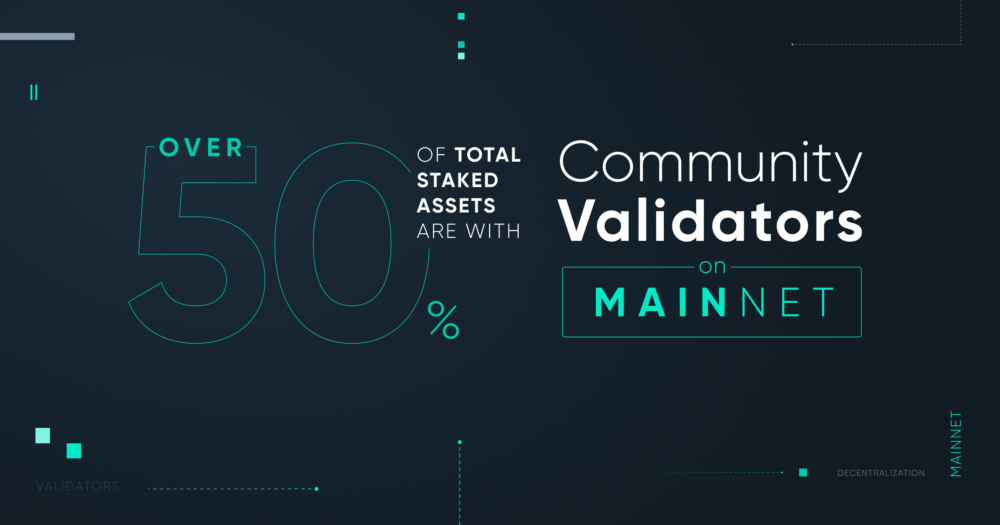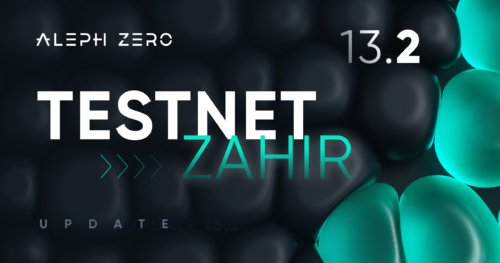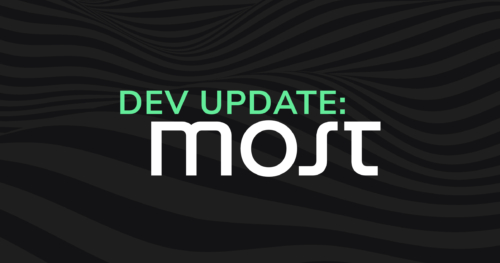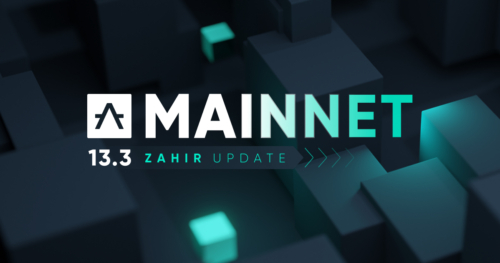Decentralization milestone: over 50% of total staked assets nominated to community validators
Mar 24, 2023

We have reached one of the milestones toward the ultimate decentralization of Aleph Zero–over 50% of staked AZERO are now with community validators. Learn what other steps are there to come and what changes now.
Aleph Zero pursues ultimate decentralization that is rooted in its consensus design. At the same time, to ensure that the ecosystem is healthy and stable, the process of handing the power over to the community is gradual. We have just reached the next milestone!
Decentralizing network validation
This step towards Aleph Zero’s decentralization was to onboard community validator nodes and then incentivize holders to nominate over 50% of total staked AZERO to them.
To reach that point, the Aleph Zero Foundation (AZF) has been gradually increasing the commission on its nodes to incentivize switching from AZF nodes to community validators. The goal has been to proceed with the commission increases until the goal is met. The last announced commission increase was to occur on March 24th. If needed, further AZF node commission increases would be happening in the future.
The goal has been reached just in time for the scheduled increase, hence there won’t be any further commission increase for the time being. We might, however, pursue an even larger share of the staked assets delegated to community validators in the future, implementing the same principle– increasing AZF’s commission further.
We’d like to thank the entire community of holders and validators for their active participation in reaching this milestone. Without your support, content, tweets, and all other actions aimed at raising awareness, we wouldn’t be able to achieve this!
The next steps toward the decentralization of Aleph Zero
Having the majority of staked assets with community validators is not the only thing that’s needed in Aleph Zero.
To ensure stable operations and timely upgrades, Aleph Zero Foundation still has a supermajority in the rotating committee of 14 randomly-chosen validators that take part in block production in one session. In the next phases of Aleph Zero’s decentralization, Foundation will hand over more committee seats from AZF to community validators.
The ultimate goal is for the community validators to have the supermajority in the rotating committee, as well as to implement a fair governance model for the community to vote over all crucial aspects of the network.


